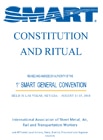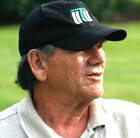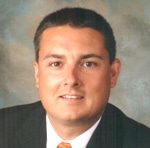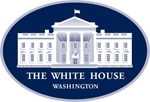
Amtrak is taking this action under Section 213 of the Passenger Rail Investment and Improvement Act which mandates that the STB initiate an investigation upon the filing of a complaint by Amtrak if the on-time performance of an intercity passenger train falls below 80 percent for two consecutive quarters. In addition, under federal law, Amtrak has a statutory right to preference in the dispatching of intercity passenger trains before freight trains.
Due to persistent excessive delays caused by NS and CSXT freight train interference, the OTP of the Capitol Limited at its endpoint terminals was 2.7 percent for the quarter ending Sept. 30, down from an already substandard 33.6 percent the previous quarter. The delays are continuing as Amtrak had to provide bus transportation between Toledo and Chicago for six days in October to better accommodate passengers when Capitol Limited trains had often been eight to ten hours late.
Poor on-time performance creates a major disruption for Amtrak customers due to delayed trains and missed connections. It also negatively impacts Amtrak and state-supported services through decreased ridership, lost revenues and higher operating costs.
Amtrak has taken additional actions to help improve the OTP of passenger trains including filing an amended complaint with the STB seeking an investigation of Canadian National Railway for causing unacceptable delays for passengers on the Illini/Saluki service in Illinois; twice testifying before the STB about the poor OTP of Amtrak trains; and establishing a Blue Ribbon Panel of rail and transportation leaders to identify infrastructure and operational improvements to address rail traffic gridlock in Chicago.
The Capitol Limited operates daily between Chicago and Washington, via Harpers Ferry, W. Va., Cumberland, Md., Pittsburgh, Cleveland, Toledo, South Bend, Ind., and intermediate stops.
 The upcoming months are historically the most deadly time of year for railroad workers, with more career-ending injuries than any other period of the year.
The upcoming months are historically the most deadly time of year for railroad workers, with more career-ending injuries than any other period of the year. The official SMART Constitution, as amended by SMART delegates at the first SMART General Convention, is now available on both the SMART website at
The official SMART Constitution, as amended by SMART delegates at the first SMART General Convention, is now available on both the SMART website at 
 North Dakota’s energy regulators are considering new rules to make the state’s “Bakken” crude oil, which has been involved in a number of explosive train crashes, safer to move by rail.
North Dakota’s energy regulators are considering new rules to make the state’s “Bakken” crude oil, which has been involved in a number of explosive train crashes, safer to move by rail. WASHINGTON – Ongoing rail service problems have left power plants from Minnesota to Texas low on coal as an early blast of winter weather hit the nation’s midsection this week.
WASHINGTON – Ongoing rail service problems have left power plants from Minnesota to Texas low on coal as an early blast of winter weather hit the nation’s midsection this week.
 President Barack Obama announced his intent Nov. 12 to nominate the following individuals to key Administration posts:
President Barack Obama announced his intent Nov. 12 to nominate the following individuals to key Administration posts: